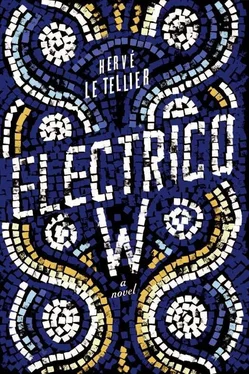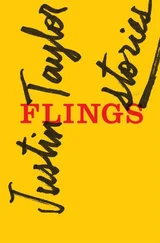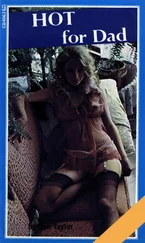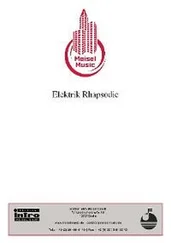I blot out all thoughts of that night. But what’s the point? At dawn I went back to the hotel, confronted their faces and their eyes, but it wasn’t the same bellboy. Anger authorizes resignation and rebirth. I was like a soldier whose fear has been utterly consumed under a deluge of fire and who, because he’s no longer capable of anything, becomes capable of everything.

I waited a long time in the breakfast room, leisurely perusing the Diário de Notícias newspaper, then rereading it. They didn’t come down, I went through to the lobby and sat in an armchair, resting my head against the leather and closing my eyes.
My father was walking up a stone spiral staircase, he was in pajamas, with mules on his feet, I was following him, holding a candle, wearing a tuxedo and worried about getting it dirty in that dark dusty-smelling stairway. The stairs went on forever, I avoided getting too close to the walls as if hands might leap out of them and clutch at me. My father went up without a sound, without even breathing, I was afraid he might turn around to look at me with his cadaverous stare, blank, accusing, and empty. A hand gripped my shoulder, I jumped in terror. And woke up.
Antonio shook me, smirked in amusement, went to pour himself a coffee, then thought again and poured a second cup which he brought over to me.
“Sleep well, Vincent? You don’t look like you did.”
“A neighbor kept snoring. Irene?”
“She’s still in bed. Big sleeper. We’ll call her later. Come on, we’re going to deal with Pinheiro.”
I folded up the Diário and followed Antonio.

THE PSYCHIATRIC HOSPITAL was a large tall 1950s building with plain architecture, covered in unhealthy ochre-colored stucco that was coming away in large flakes. Ricardo Pinheiro was locked in a padded cell in the security department. A pointless precaution given that, since his arrest, he had tried nothing against himself or his guards.
Dr. Vieira was a short bald man in his sixties, on the chubby side, jovial-looking, with an extinguished cigar wedged permanently in the corner of this mouth. Gray overalls would have turned him into the archetypal hardware dealer, but the white equivalent failed to make him look like a psychiatrist. Scarlet tie, pink-and-turquoise Jacquard sweater: Vieira had plenty of taste. Bad taste but a lot of it, as someone once said. He was talkative too, and I think that, after greeting him, I didn’t need to ask a single question. He was proud of his patient, as the director of a zoo would be of a recently acquired rare specimen.
“So, are you here to ask me about our national celebrity? Watch out, don’t forget I’m seeing you in my capacity as an expert witness, not in my capacity as practitioner, right? And for the record — and I insist on this ‘for the record’—I’m a psychiatrist. I don’t want any trouble. I won’t breach confidentiality. We’re agreed on that.”
I nodded.
“Perfect. Pinheiro may not be our first serial killer, but he’s the strangest of all. Obviously, because soldiers and doctors don’t fit in with statistics, killing is kind of our job, isn’t it?”
Vieira pushed his glasses up his nose, loosened his collar, and led us into his office, which was cluttered with files. He sat in his chair, I took the other one, and Antonio got out his camera.
“He’s almost a pleasant man, this Pinheiro. Smiley, not disturbing in the least. If he wasn’t in pajamas and slippers you’d think he was a visitor or, actually, some cleaner guy, a doctor even. Important, those slippers. They’re real proof that …”
Vieira twirled his index finger around his temple. He laughed and tucked his cigar in the breast pocket of his overalls, with the glistening chewed end uppermost.
“Here,” he said, “a piece of advice. Don’t ever put slippers on, they’d never let you out of this place. Okay, I’ll show you what there is to see.”
Vieira opened a file. Pinheiro looked different in the photographs, he seemed younger, maybe forty, and thinner too. Perhaps due to hospital food, and the year of enforced rest. He never looked at the lens, but always high above it, as if an angel were hovering in the room.
“There’s a paranoid aspect to Pinheiro, and this is indicated by, for example, his inability to criticize himself, his sensitivity, even his distrustfulness. But there’s no pride or authoritarianism. And at the same time, he presents a schizoid pathology: his solitary, introverted side, which is almost certainly coupled with a vivid imagination — that bronze undergarment was quite something, after all!”
“A coat of mail.”
“If you like. Would you like to see it? The police kept the thing itself, but look what I have here.”
He riffled through the folder and spread a number of photos on his desk.
The coat of mail had clearly been made using traditional craftsmanship. It would have covered his entire torso from the small of his back to his neckline, and was so heavy it must even have injured him. I obviously pulled an expressive face because Vieira clarified: “Seventeen and a half pounds. And no tools to make a thing like that were found at his house. In fact, did you know that on his wrists and ankles he wore plain bronze hoops, no ornamentation or engraving? Even sewn into the felt rim of his hat, guess what we found? A wide band of very thin bronze.”
He shook his head.
“I warned all the staff. Paranoid schizophrenics are unpredictable creatures. You know, a guy like that could eat your eyeballs! We didn’t get a thing out of him, he didn’t want to talk about anything. The only conversation I managed to have with him was about astronomy.”
“Astronomy?” Antonio asked as he put away his camera and films.
“Jupiter’s moons, it was his favorite subject. Pinheiro says that on a dark night with a clear sky, fewer than one person in a thousand can see them with the naked eye. Which might as well be no one. Before the astronomical telescope was invented, anyone who could didn’t dare talk about it.”
“Was his eyesight really that good?” Antonio asked in amazement. “In the pictures though, he’s wearing little glasses, look.”
“No, I think it was actually his favorite metaphor. He told me several times, ‘Be right about something one day in front of everyone, you’ll be taken for a fool for a day.’ ”
Antonio closed the zipper on his bag, his noisy way of showing he wanted to get out of the hospital as quickly as possible. Vieira noticed this impatience, closed his file, and politely claimed he needed to leave for his consulting hours. He shook our hands and was already walking away, but turned around and handed me his card.
“If you’re alone in Lisbon … It’s only a small place, we might bump into each other by chance, but should we always leave everything up to chance? Do you have a card?”
I told him what I had told Custódia: “I’ve only just moved.”

IRENE ASKED US not to wait for her, and we had risotto for lunch on a restaurant terrace, in the shade of a large ficus in a square along Dom Pedro Avenue.
When we were having coffee, an Irene in a red dress appeared around the corner of the street, facing me, suddenly looking heavier than I remembered, almost plump. She waggled a copy of Le Monde in her hand, ran over to us, and, without a word, nestled on Antonio’s lap, taking his hand and putting it on her bare thigh. Then she gave me a fish-eyed stare, drained of any expression. I looked at my watch, miming someone in a hurry, and stood up. Irene rested her head on Antonio’s shoulder.
Читать дальше














